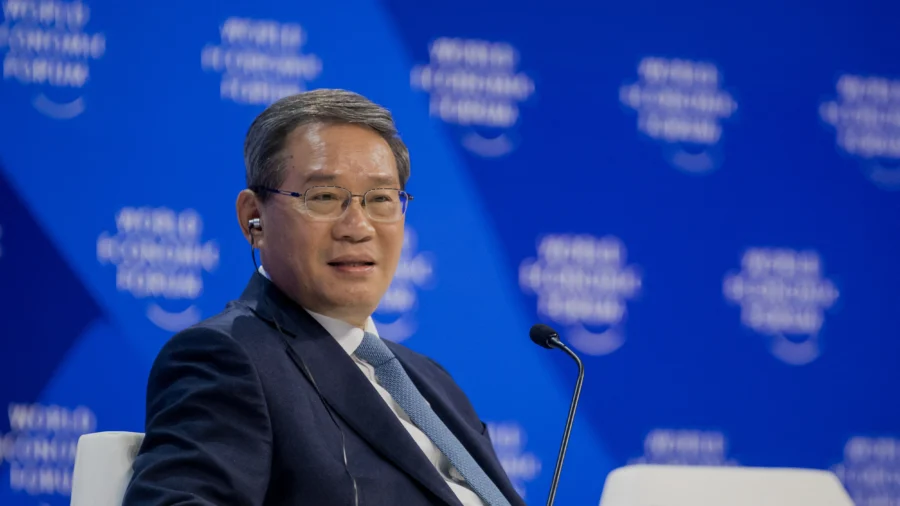China has scrapped the press conference held by its premier following the country’s annual two sessions, marking the end of a decades-old tradition. Analysts say the move will likely increase the level of secrecy surrounding Chinese politics.
The change was revealed on Monday as more than 5,000 carefully picked delegates from across the nation are in Beijing for the annual meetings of the National People’s Congress (NPC), China’s rubber-stamp legislature, and the Chinese People’s Political Consultative Conference, the Chinese Communist Party’s (CCP) top advisory body. The meetings are collectively known as “two sessions” or “lianghui” in Chinese.
Lou Qinjian, the spokesperson of the NPC, told reporters that the premier would no longer give a press briefing at the end of this year’s meetings. “If there are no special circumstances, no premier’s press conference will be held for the remainder of the current term of the NPC,” Mr. Lou added.
The meet-the-press tradition could be traced back to 1988 when then-Premier Li Peng attended a media conference after the two sessions for the first time, according to state media. Although the briefing was scrapped in 1990, when the regime’s 1989 Tiananmen Square massacre attracted global attention, it has become a tradition since 1993 and a highlight of the annual political events.
Wang He, a U.S.-based China affairs commentator, said the premier’s press conference reflects a delicate balance of power between the Communist Party’s leader and the state’s premier. As Xi Jinping, the Party’s current boss, has concentrated policymaking under himself and the Party in recent years, there has been a shift in the power dynamic.
“Xi has made himself the core leader,” Mr. Wang told The Epoch Times. “By scrapping the premier’s opportunity to talk to the press, Xi intended to prevent him from stealing the limelight.”
In addition, the communist regime’s top leaders rarely interact with the media, Mr. Wang said. When the premier responds to journalists directly at the annual press conference, it provides an opportunity for China observers to see the country’s No. 2 official up close.
“Now, China’s politics will completely enter a black box,” Cai Shenkun, an independent commentator, wrote on social media.
Focus on Economy
The highly choreographed NPC meetings will kick off on Tuesday, with all eyes on plans to support growth in the world’s second-largest economy.
A property crisis, deepening deflation, a stock market rout, and mounting local government debt woes have pressured the regime’s leaders so that the stakes for this year’s session loom large for international investors and companies operating there.
Li Qiang, who was named premier at last year’s session, will deliver his first “work report” on Tuesday, which is expected to include China’s target for economic growth.
Analysts expect him to unveil moderate stimulus plans to stabilize growth but stop short of bold reforms to fix deep structural imbalances.
Mr. Li may also elaborate more on how the state wants to leverage “new productive forces,” a concept first raised by Xi last September describing steps to promote strategic industries, including artificial intelligence.
China will also announce its defense budget, which has grown at a faster pace than GDP since Xi came to power 11 years ago.
Despite a purge last year of several generals in charge of military procurement, analysts say the military buildup would underscore the emphasis that Xi, as commander-in-chief, puts on national security amid strategic competition with the United States.
Another focus of the meeting was potential personnel changes. Some diplomats expect Beijing to appoint a new foreign minister as NPC convenes this week. Liu Jianchao, now the CCP’s de facto foreign minister, has been tipped to succeed Wang Yi, the regime’s top diplomat who was reappointed to the minister’s post last July following the sudden ouster of Qin Gang.
Reuters and Luo Ya contributed to this report.
From The Epoch Times

